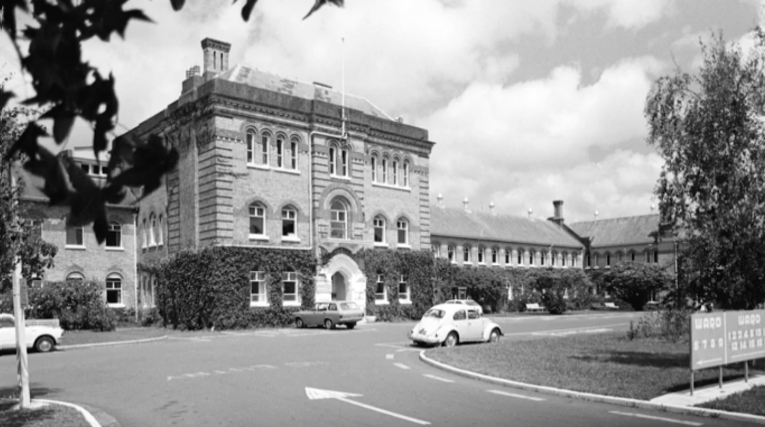
Warning: Includes descriptions of abuse
Alison Pascoe spent 40 years in psychiatric hospitals in Auckland. But she should not have been admitted in the first place.
"I have never had a mental illness," the 79-year-old says.
While committed at Kingseat Hospital in Karaka and Carrington Hospital in Pt Chevalier, she suffered relentless abuse. She was beaten, raped, and psychologically and emotionally abused at both institutions.
She was put to work for little pay, was placed in seclusion for weeks at a time, had her belongings and money stolen by staff, and was over-medicated. Through it all, she was never diagnosed with a mental condition.
"I feel that I have been punished and treated like a criminal for a crime I have never committed," she said.
Pascoe told her story in a pre-recorded video to the Royal Commission on Abuse in State Care today. The commission is holding hearings in Auckland for people who were placed in institutions for the disabled, deaf and mentally ill between 1950 and 2000.
She said she was born into a violent home. At age 3, she contracted a rare form of chicken pox, which led to brain inflammation and nearly took her life.
The brain injury meant she struggled to learn and often played up, and was misdiagnosed as mentally ill. A physical attack on her parents - which she cannot recall - was used as a pretence for committing her to a mental hospital.
Pascoe was admitted to Kingseat in 1950, aged 8 years old. She would never forgive her parents for it, she said.
There were terrible conditions in the adult ward she was placed in, with dirty blankets and "floorboards rotten with urine". She had no schooling, family visits were rare, and the nurses were "straight up evil" and "sadistic". One nurse in particular treated her "like an animal", bashing her head against a wall, tearing her hair out, and making her sleep on a canvas.
She befriended some cats at the hospital, which were left by former patients. A nurse once threatened to kill the cats, and Pascoe said she attacked her. Two weeks later, three staff members placed the cats in a sack and drowned them in a stream on the grounds while she fought to save them. She said she had never forgotten that day.

Pascoe said she was forced to take tranquilisers like Paraldehyde and Largactil three times a day at Kingseat. On one occasion, an injection knocked her out for two or three days.
There was no one she could talk to about the abuse she endured. She was not believed, or complaints were not escalated. Occasionally, bad staff were fired, but the abusive treatment continued. \
When she was sexually abused at Kingseat at age 12, the male patient who attacked her was disciplined but police were not called.
Pascoe told her parents about the sexual assault, and they demanded that she be transferred to Auckland Mental Hospital, later known as Carrington Hospital.
She had more company, activities and freedom at Carrington, and was allowed to leave the grounds with permission. But she again faced the same institutional neglect and abuse as Kingseat, including electroconvulsive therapy. She was beaten by staff, and raped again by a mentally ill patient.
Pascoe's modest income for housekeeping work and her benefit payments were often stolen by staff members. In 1994, after Carrington closed, it was found to have stolen $4 million from 20,000 patients.
Pascoe said she stuck up for herself, arguing with staff, and on several occasions fighting back. This made life harder for her - she was placed in seclusion at Carrington almost immediately after she arrived, and estimates that she had hundreds or even thousands of stints in seclusion, sometimes for a week or more.

"I was a medical case with physical conditions caused by abuse and neglect."
It was not until 1990, when she was placed in a boarding house, that a doctor named Chris Perkins said she was not mentally ill and that authorities were breaking the law by keeping her committed.
After being shuffled through boarding houses and rest homes, she is now in her own flat, with support. She lives in near-constant pain from the injuries suffered at the hospitals, and brain and nerve damage from sustained, heavy medication.
Pascoe took a civil claim against the Ministry of Health in 2005. She had hoped for $4 million in compensation to allow her to live independently, buy a home and pay for care, (while noting that no money would ever make up for what happened to her). She received $18,000 for wrongful imprisonment and abuse within psychiatric hospitals.
Pascoe told the commission today that she wanted a legal unit to be set up to protect victims of psychiatric abuse and neglect, and for her abusers to be charged and jailed.
She also wanted structural change to the health sector which recognised the rights and voices or disabled and vulnerable people.
"This hell on earth that we went through all those years ago must never, ever happen again to me or anybody else."












